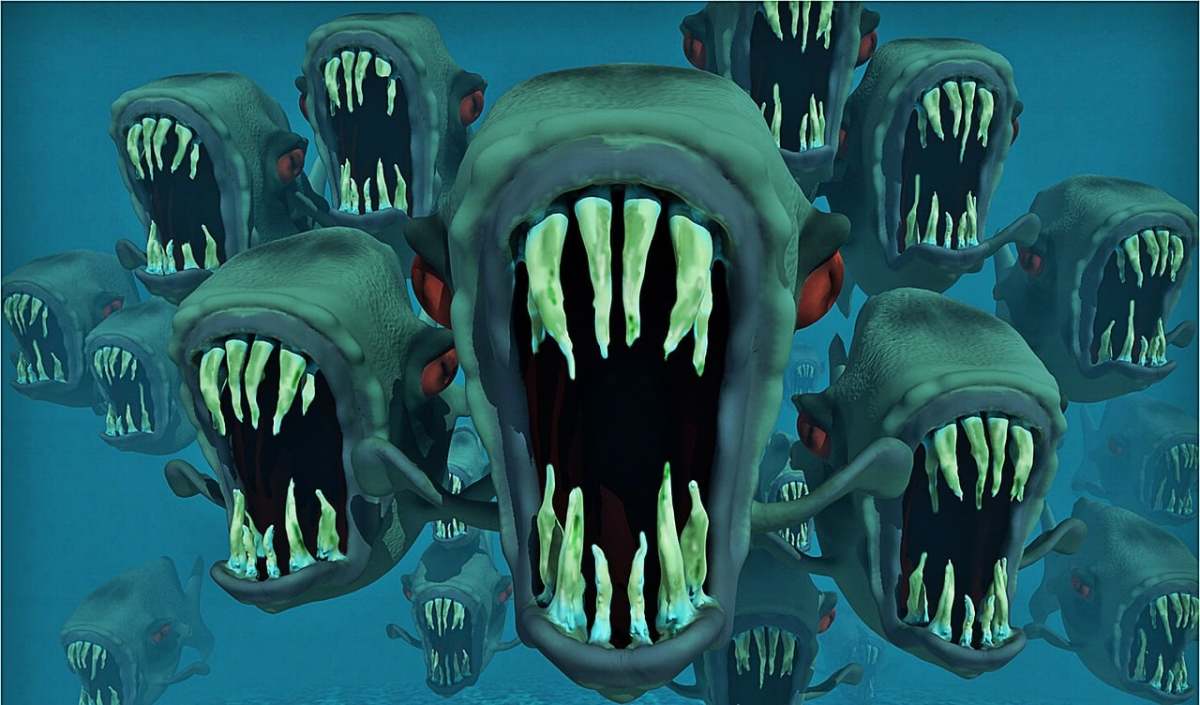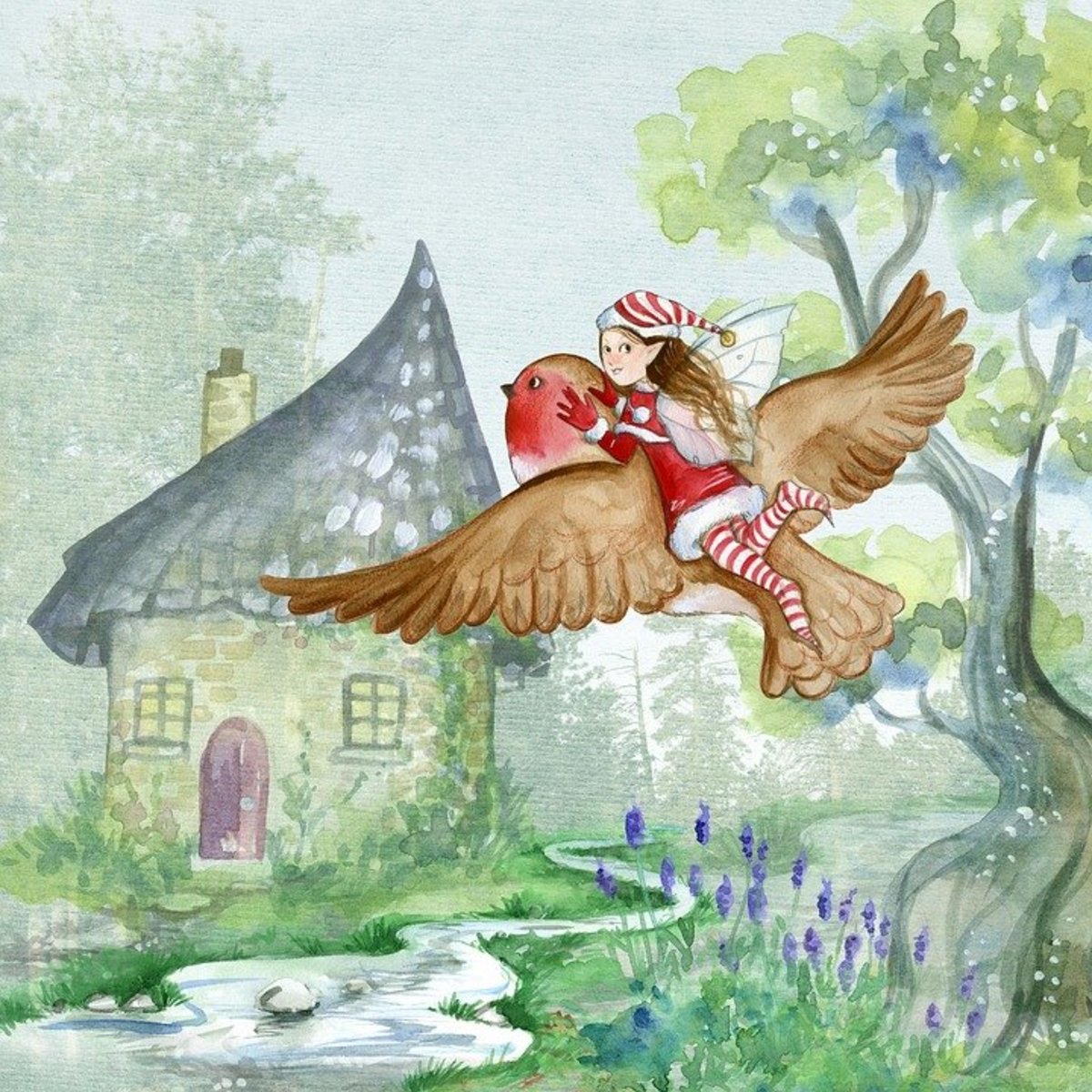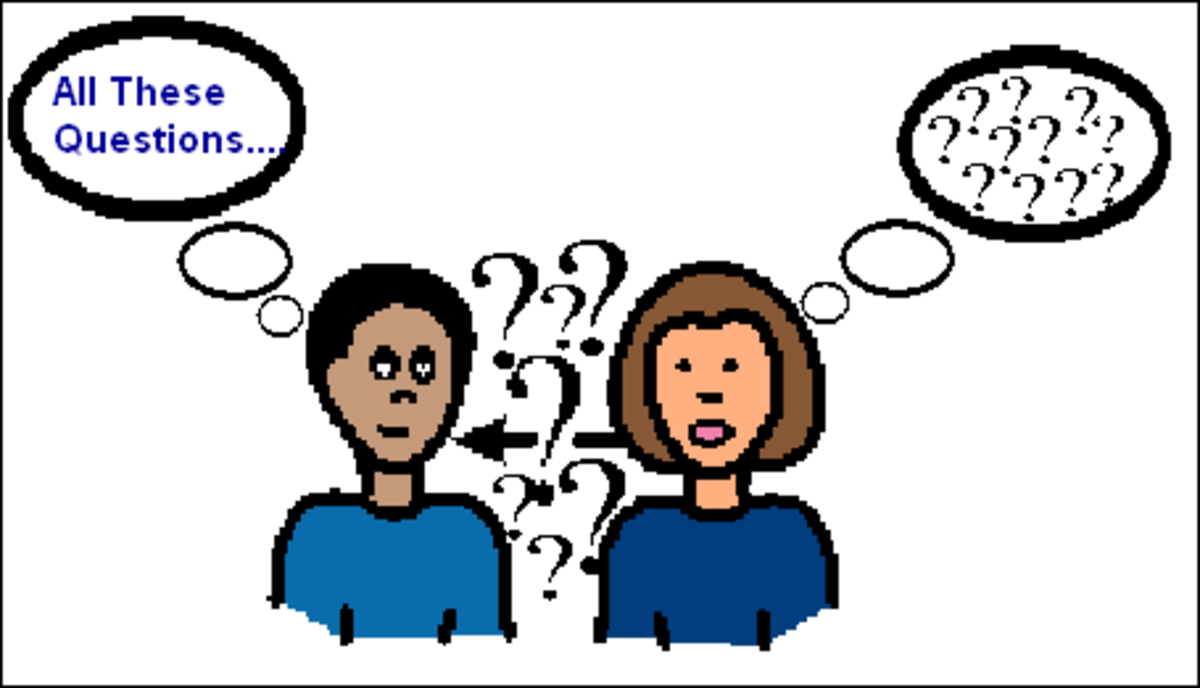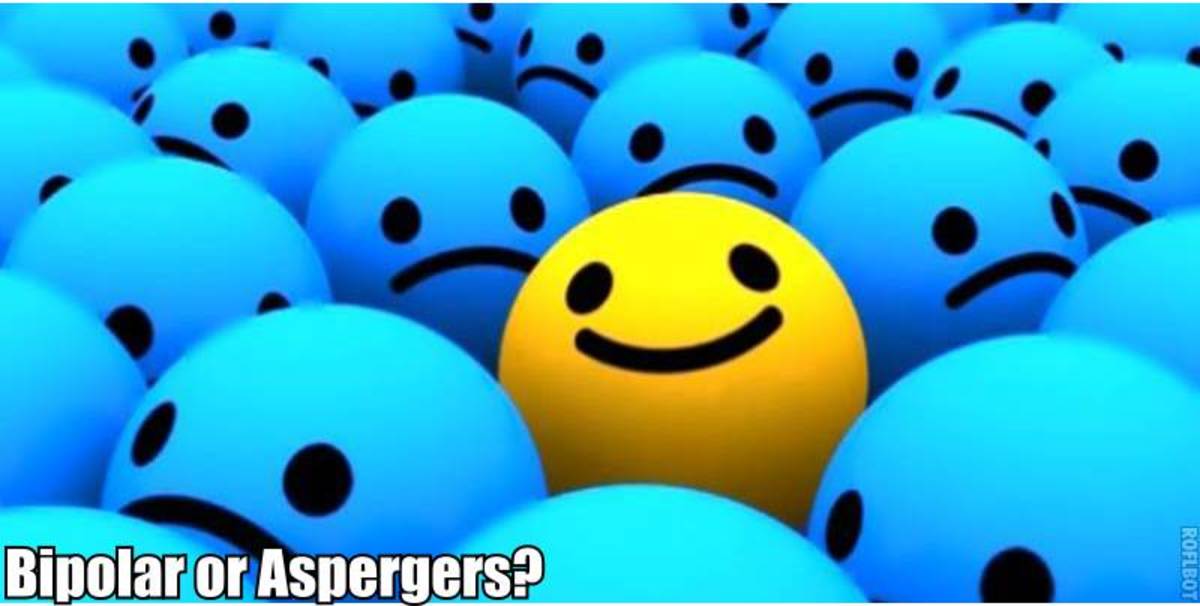Living as a teenager and adult with Asperger's Syndrome and autism. Plus step by step guide to help you cope.
How the pieces fit; Photo by Val Swabb
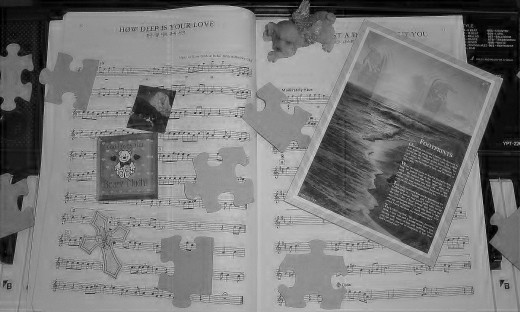
For more information on what Asperger's Syndrome is,please check here:
How I survived being a teenager, and how I live as an adult with Asperger's.
I'll start out by saying, I did not know that I was autistic, with Asperger's Syndrome until in college, and I didn't understand it until I was near 30. Knowing and understanding it would have given me, my family and friends, and my teachers the ability to cope differently with situations that came up.
Growing up, I always knew I wasn't much like the other kids. Often I didn't understand things that many people knew instinctively. I would do and say things to friends, family, and even strangers that to me seemed fine, but would upset them. Actually, I still do that now, but my friends and family try to understand, and we get through it; sometimes without major hurts, but still often with them. People anywhere on the autism spectrum have trouble learning and understanding basic social skills. Often when I said something that made people angry, hurt, or confused, I would turn it around and say it was a 'joke'. My friends began taking much of what I said as a joke. They knew without knowing why I did it, that I didn't mean to hurt them. These issues still come up, but I have learned that instead of turning it into a joke, I can explain that I didn't understand it would be a problem, and I can learn from it. For example:
Recently I was selling something on a Facebook group. I had stated that I would be willing to accept offers. Because it was a brand new item, I decided I didn't want to sell it unless I could get the full value. So after someone made a reasonable offer, I told her I had changed my mind and why and this made her angry. After she got angry, some others explained that what I did wasn't really ok, and why. Now I understand, intellectually, that what I did was equivalent to breaking my word, but my mind still sees it as 'It was my item, my choice.' Frequently, it comes down to semantics, how something is worded, whether it is acceptable or not. People with Asperger's are likely to take the most direct route to say something. Instead of the socially acceptable 'That color's not really good for you, why don't you try this one instead'; an Aspy is likely to say 'Oh, that's awful, don't wear that!' Explaining these differences in thought processing can lead to much more relaxed interactions with family and friends.
Many people with Asperger's and other ASD's sometimes have a problem with their brain mixing up words. You'll be thinking one thing, and either the word that comes out of your mouth, comes out as the wrong word, or with the wrong sounds. Examples: alligator vs. alligrator; or 'would you please hand me the pot holder?' vs. 'Would you pot holder hand me please?' It's not a big difference, but for a kid or teenager, saying things like that is very embarrassing. I dealt with it by turning it into a joke. I began saying things wrong on purpose, so that when I didn't mean to do it, people just thought I was being silly again. I believe this is a form of dyslexia that is verbal instead of visual. It is very common in people with ASD's.
A major coping mechanism for me was learning to simply 'get away' from people at times. As soon as I was old enough (ok, I probably wasn't really old enough, but I did it anyway) I would start 'escaping'. I'd take long walks through the woods; find a beach, or even a corner of the backyard to hide out in. Often I'd have one or both of 'my' dogs with me. When I had bad days, and wasn't pleasant to be around, my dogs were always there for me. Once I could drive, I spent many evenings and nights driving around alone, or heading out to the local beach and sitting there for hours.
I also have a very, very good memory for music. My memory may not be great for anything else, but it's great for music. So I always took music along with me in my head. Even as an infant, music was one of the few things that could soothe me. My mother was in her church choir, and she could get through rehearsals by setting me in my seat right beside the drums. I was in children's choir from the moment I was old enough, and started playing an instrument in middle school. These gave me another form of escape. If I was stuck somewhere around people, or in situations I didn't like, I could escape into my music, even if just in my mind. I fully believe that having a hobby, one that you really really love, and can do both alone and with other people, is essential for someone with autism. It might be books, painting, music, writing, taking care of animals or exploring; anything you feel 'best' doing.
As a mother of two, with a wonderful husband, getting away is a little different now. I still have my moments of just having to get away. Long, very hot soaks in the bathtub and books have been my means of escape when the kids are home. The books leave me able to escape, but still be a good parent, keeping an eye on them, stopping fights, and all such normal parenting things. I believe all parents; even those 'normal' brained ones out there need a means of escape! Baths are saved for when Hubby is home and available for kid care. My youngest started school this year, so I have all this time during the day I'm trying to figure out what to do with. I've never been able to do 'nothing' for long. I'm always one the go, whether in a book, or doing something else. I have a feeling the local library is going to run out of books for me in the not too far future. It's a good thing there are so many talented writers out there!
I also was involved in some kind of physical activity through almost all of growing up, from gymnastics as a child, to softball, to marching band. During times when I was not involved in something physical, it seemed my confusion about things got worse. At fifteen I had surgery on my knee and was limited activity wise for several months and I feel my ASD symptoms worsened during this time. Since developing fibromyalgia and Chronic Fatigue Syndrome in my late teens, (possibly caused by undiagnosed Celiac Disease; also common in those on the autism spectrum), my physical activity has been very limited. Some of my Asperger’s symptoms, such as social confusion, and what I call verbal dyslexia, got much worse. In the past year through diet changes, going fully gluten free, and having proper thyroid assistance, I have begun recovering from the medical problems. I have started walking regularly, and these problems are beginning to ease.
I also had a very good support system with family, friends, and various churches. I was taught young that God made us all, and loves us all exactly how we are. That God wants what is best for us, and that God understands us, and knows our hearts, even when no one else seems to. This helped me know that even if I was different, there was always somewhere I would belong, and always someone who would love me regardless.
I've always had a very hard time living with people, and the older I've gotten, the harder it gets. My mother and I are very close friends, unless we are living together. The exception I've found to this is my husband, and of course, my kids. He is a wonderful man, who knowing I had many medical problems, took me on anyway. Thanks dear! When we first got together, I didn't really understand what having Asperger's meant. I had only recently found out about it, so we had some rough times that I caused with my mouth. After learning more about Asperger's, I explained to my husband about it, and how my mind works differently, and I believe it has helped us to understand each other better. Do not try to hide the autism from people, especially those close to you. Knowing about it helps them to know you better, and not knowing can lead to lost friendships and even broken marriages.
Mostly, it comes down to understanding yourself, and what you need, or understanding your friend’s, your child’s or your student’s needs and limitations. Learn about Asperger's and the autism spectrum, but remember that all people are different. No two people with any form of autism are going to be exactly the same. No two 'normal' people are the same, not even twins, so why would we be? Pay attention to the things that make you 'feel' better, or worse. Make lists, charts, whatever you need to keep track of it all. You know yourself, or your child, better than anyone else ever will. Learn to trust yourself. What follows is my step by step guide to coping. Thank you for joining me today, I hope this helps you, or even one person out there!
Step by Step guide to life with ASD, how to not just live, but thrive!
This is a guide to learning to live life to the fullest with ASD’s. In this guide the words ‘you/your’ may also mean ‘your child, student, or other person you are helping with an ASD’.
Step 1; Learn about your ASD, whether Asperger’s or another classification. Also learn about the other ASD’s since there are often cross-over issues.
Step 2; Make a journal, find out what makes you feel better or worse. And what you enjoy the most, and things you truly dislike.
Most people on the spectrum suffer from Celiac Disease/ gluten intolerance, and/or casein allergy/intolerance. Gluten is a protein found in many grains, wheat, barley, rye, and some oats. There are also similar proteins in corn. Casein is a protein in milk and other dairy products. Many people have significant improvement after trying gluten free and/or casein free diet. Remember that it takes months to remove all gluten or casein proteins from your body once you stop eating it, and it takes years to heal the damages caused by eating them.
Step 3; Make changes to your diet or routine to better fit with the good parts from your journal. You may want to try the GAPS diet or the Body Ecology diet if you want a program to follow.
http://gapsdiet.com/GAPS_Outline.html
http://bodyecology.com/aboutbed.php
Step 4; Find your personal hobby/hobbies. Find your escape. I have seen both with myself and others tremendous success with music and art therapies or hobbies. It is very important to know when to walk away from a situation, when it is getting too much for you. Have places where you can go to and feel safe. If possible, bring a hobby with you, or have access to it from this ‘safe’ place. You do not have to engage in the activity every time you need to escape, but having it there with you will give you peace and comfort.
Step 5; Have a pet, a holdable cuddlable one, (medium-small to medium size dogs are best for this in my opinion). If you cannot have a real one, have a ‘special’ stuffed animal. Something/one that will simply be there for you no matter what you do or how you feel.
Step 6; Have a support group, family, friends, and/or church. Help these people to learn about ASD’s and especially about the specific difficulties you face. Being taught that God loves me no matter what, and that He understands me even when I sometimes don’t helped me get through many rough times.
Step 7; Do not hide your ASD from people. You do not have to go announce it from the rooftops, but nor should you feel ashamed of it. Our brains simply work differently than ‘neuro-normal’ people. Also remember that someone who turns away from you because of being different is not someone you needed around to start with. If you hide it from people you are, or want to be close to, you can inadvertently hurt them through avoidable misunderstandings.
What has helped you to cope and thrive?
Gluten Free Cooking!!!
Link to my article about my youth, and healing autism.
- Healing Autism: "The Wires Were Crossed, and Somehow They Uncrossed"
This is the story of my childhood, and healing from severe autism, to high functioning Asperger's syndrome. Includes my ideas on treating autism, and what I believe are some of the causes for autism and it's ever increasing occurrences.


